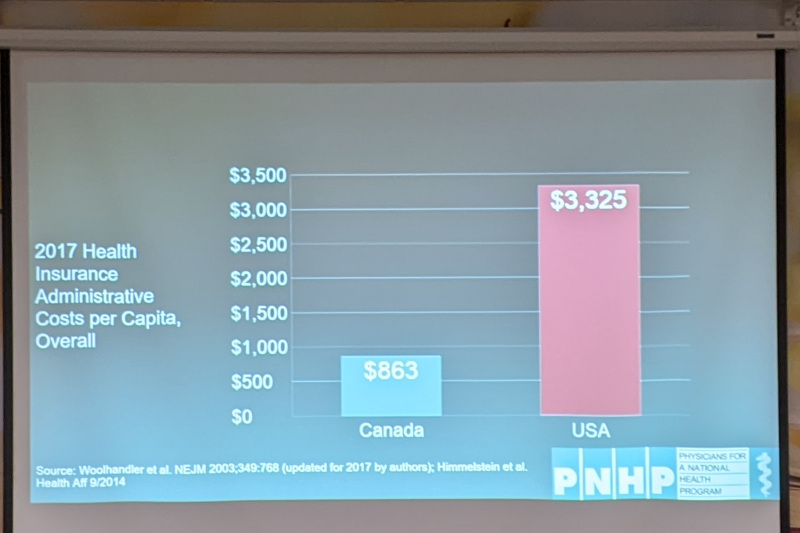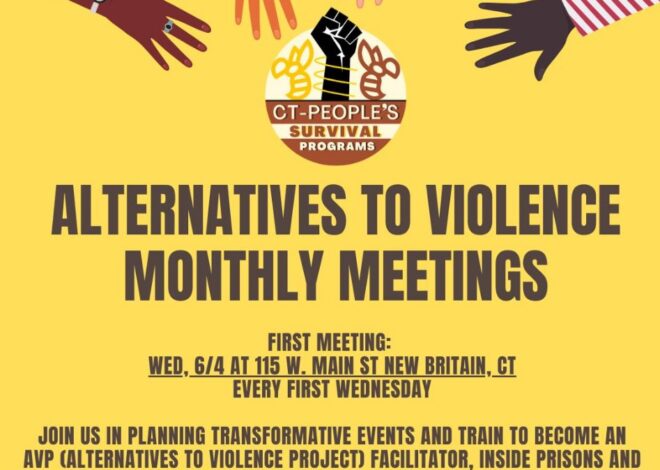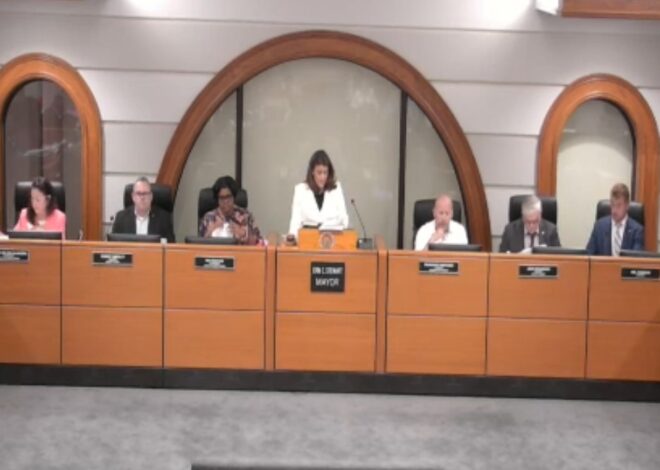A nurse and other advocates discussed problems and possibilities in the healthcare system at the New Britain Public Library on Thursday, April 7, 2022.
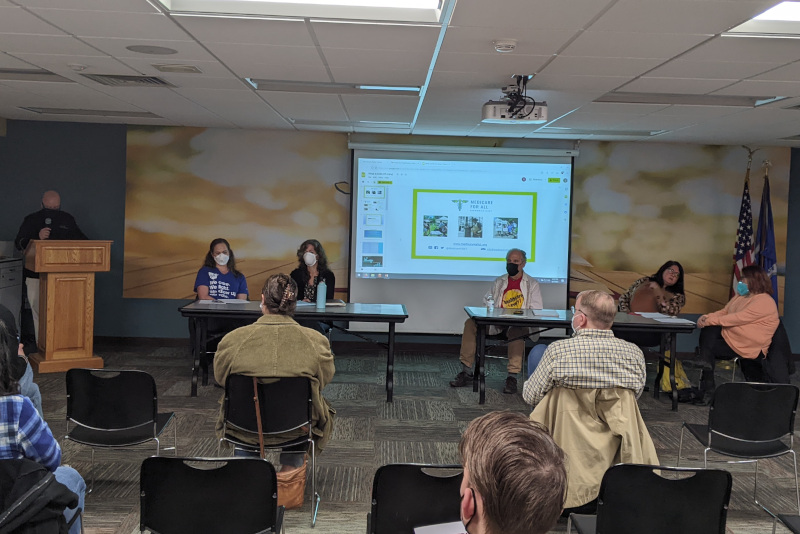
The discussion was at a “Healthcare in Crisis” panel discussion, hosted by the New Britain Public Library and Building Economic Equality – New Britain.
Registered Nurse Sherri Dayton, who is President of the Backus Hospital Nurses Union, discussed problems nurses encounter in the delivery of health care, including a high patient to nurse ratio, few breaks and long shifts. She said staffing levels limit the time nurses are able to care for each patient, and she discussed the effects of this on quality of care.
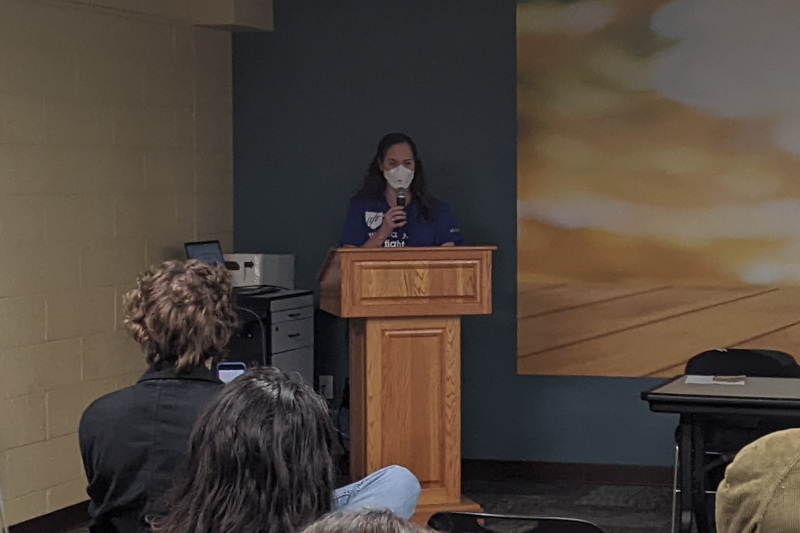
Dayton discussed how union activism by nurses has helped to alleviate some of the problems faced by nurses and their patients. She also discussed how her union is pressing for legislative action to limit the number of hours nurses can be made to work in a shift and to improve hospital regulation to prevent hospital organizations from cutting back on patient services, such as labor and delivery wards in northeast Connecticut.
Liz Dupont-Diehl of the Connecticut Citizen Action Group (CCAG) discussed the work of her organization to expand access to health care coverage. The organization pressed the state legislature to approve a health care “public option” — a non-profit health plan that would be an alterative to for-profit insurers under the Affordable Care Act.
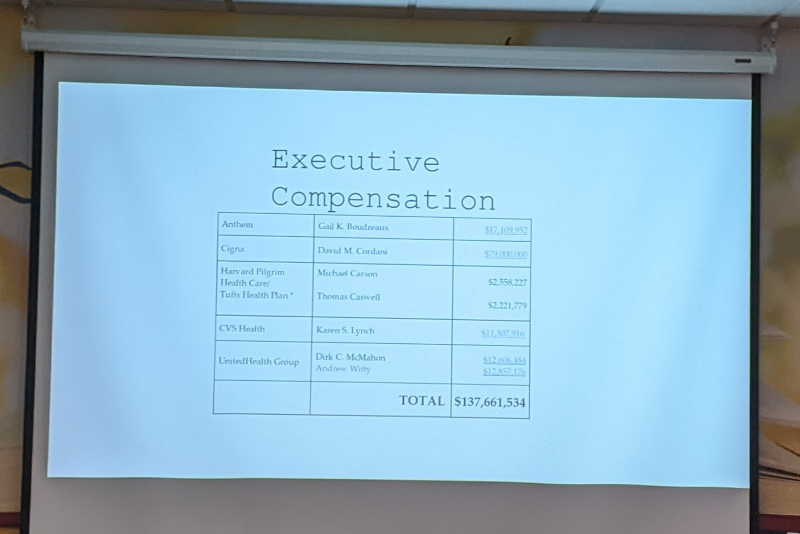
The public option plan was not approved by the legislature, Dupont-Diehl said, after health insurance executives threatened to leave the state if the legislation was approved. In response, Dupont-Diehl said, CCAG initiated a “five families” campaign to expose the high salaries of those CEOs and the profits of their companies.
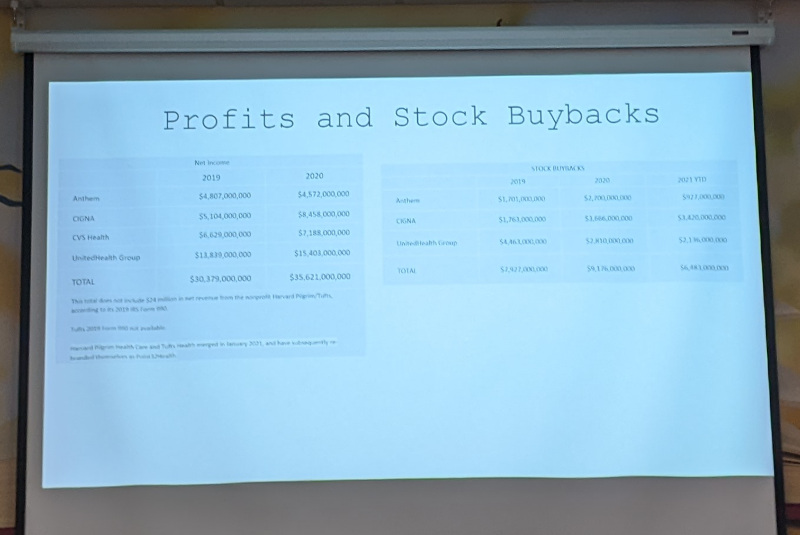
Representatives of the all-volunteer Medicare For All Connecticut, including Sivan Amar, said that the group supports the public option concept, but still noted that it falls short of the goal of ensuring health care coverage for everyone.
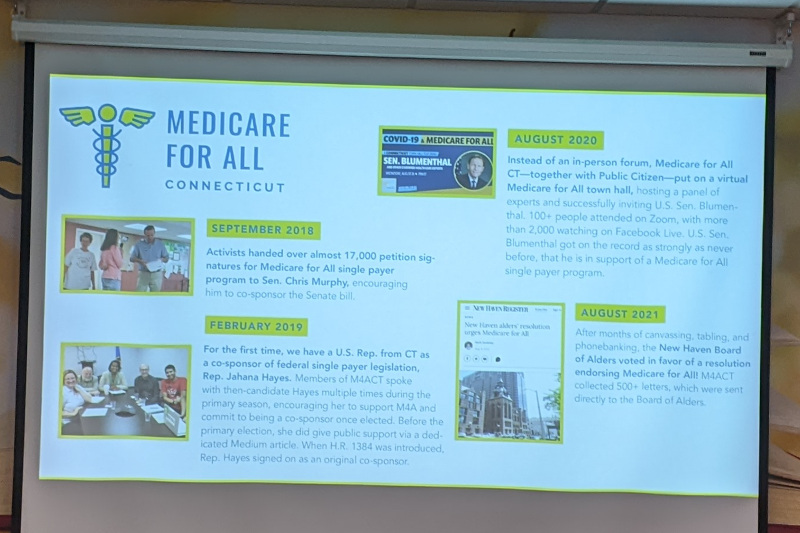
Instead, Medicare For All promotes the concept of the federal government expanding access to Medicare, which presently covers seniors and people with disabilities, to cover everyone. That change would make Medicare a true single-payer health coverage system.
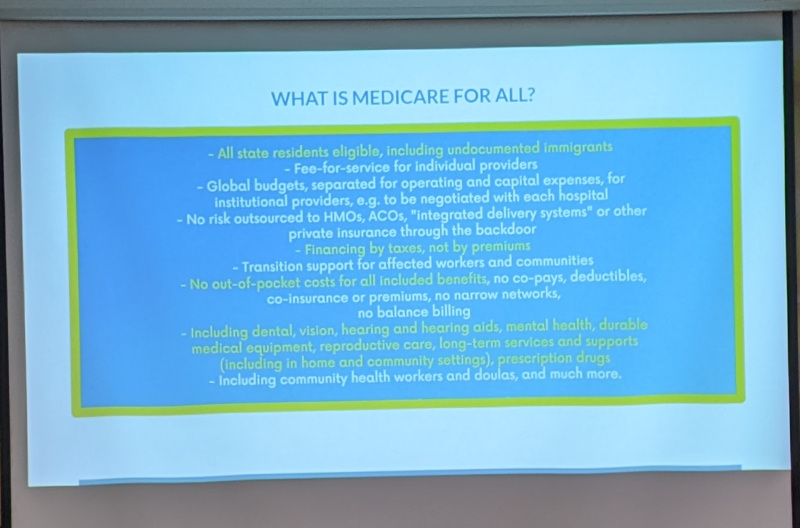
The organization pointed out that having a single payer health system would reduce the net amount that Americans pay for health care coverage and relieve people of the burden of paying for health insurance corporate profits.
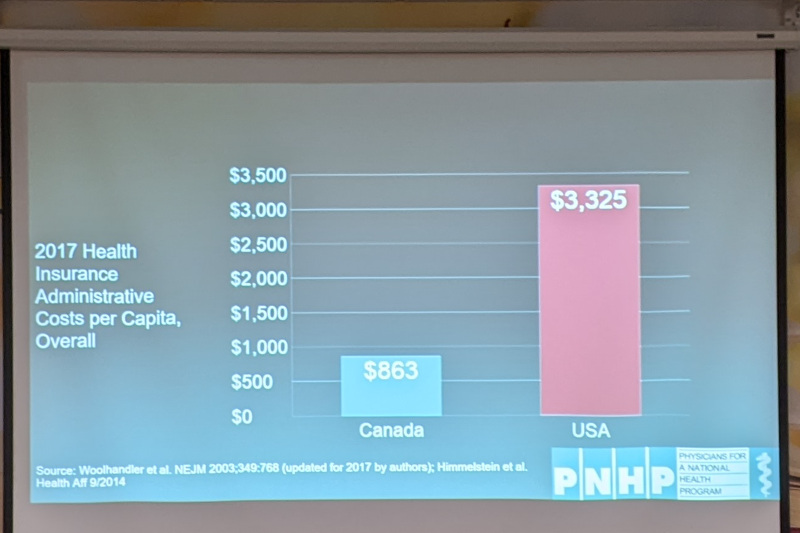
William Shortell, former Chair of the New Britain Democratic Party, discussed the history of the politics of health care in the country, from the 1930s to today.
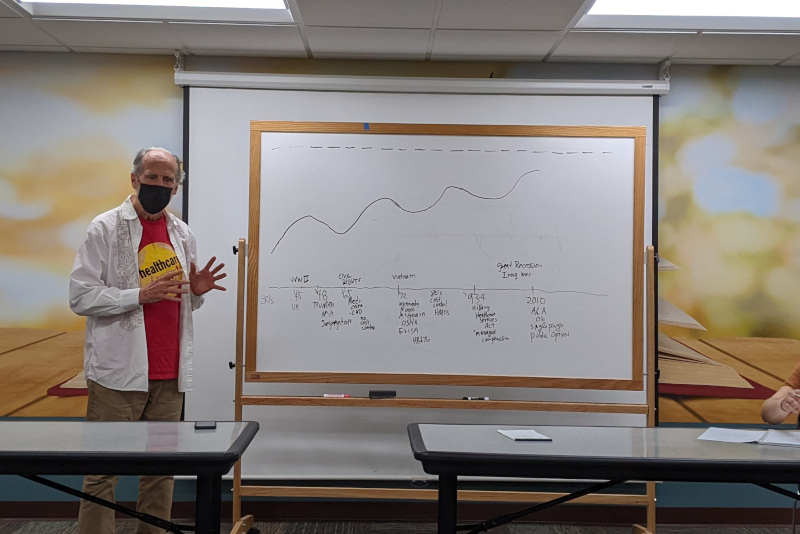
Shortell described that history as a series of waves in which the concept of enacting universal health coverage became a higher priority in the politics of the day at different times, followed by times when there was less advancement. In each wave, Shortell said, the policies of the country were brought closer to universal coverage, but still fell short.
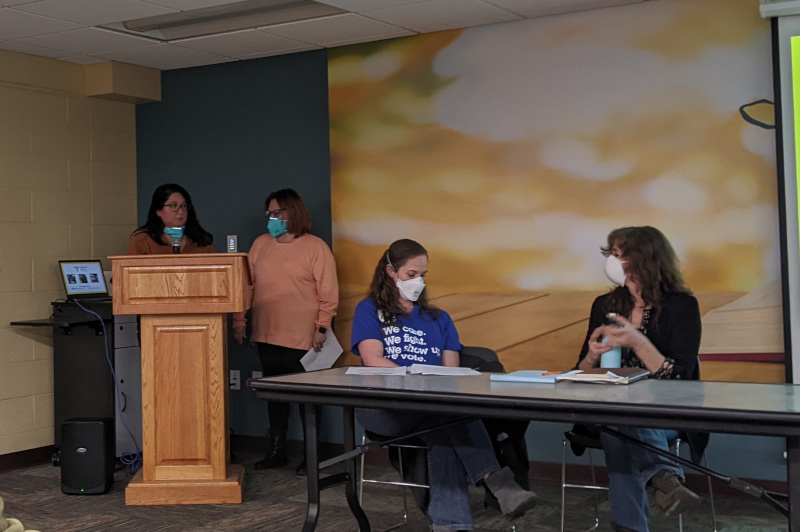
The event was held on April 7th because that was World Health Day, recognized by the World Health Organization as the anniversary of the founding of the Organization in 1948.

